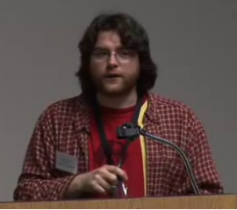A Quote by Miguel de Icaza
All of our code is open source, so it can be used for other projects.
Related Quotes
The Open Source theorem says that if you give away source code, innovation will occur. Certainly, Unix was done this way... However, the corollary states that the innovation will occur elsewhere. No matter how many people you hire. So the only way to get close to the state of the art is to give the people who are going to be doing the innovative things the means to do it. That's why we had built-in source code with Unix. Open source is tapping the energy that's out there.
If an open source product gets good enough, we'll simply take it. So the great thing about open source is nobody owns it - a company like Oracle is free to take it for nothing, include it in our products and charge for support, and that's what we'll do. So it is not disruptive at all - you have to find places to add value. Once open source gets good enough, competing with it would be insane. We don't have to fight open source, we have to exploit open source.
What I do for a living is somewhat like mercenary prostitution. I spend a lot of energy trying to find games to bring to alternate platforms, like Linux and MacOS, and in my free time, I work on various open source projects, and other freebies like that. So I guess I'm a hooker with a heart of gold, sorta.
There's a definite sense this morning on the part of the Kerry voters that perhaps this is code, 'moral values,' is code for something else. It's code for taking a different position about gays in America, an exclusionary position, a code about abortion, code about imposing Christianity over other faiths.
If the DHS insists, as bureaucracies are apt to do, that open-source must be certified via a sanctioned, formal process, it will interfere with the informal process of open-source itself. It seems to me the DHS is trying to turn an open-source development project into a Microsoft (or IBM or Oracle) software development project. And we know what that means: more, not fewer, errors -- security and otherwise.




































